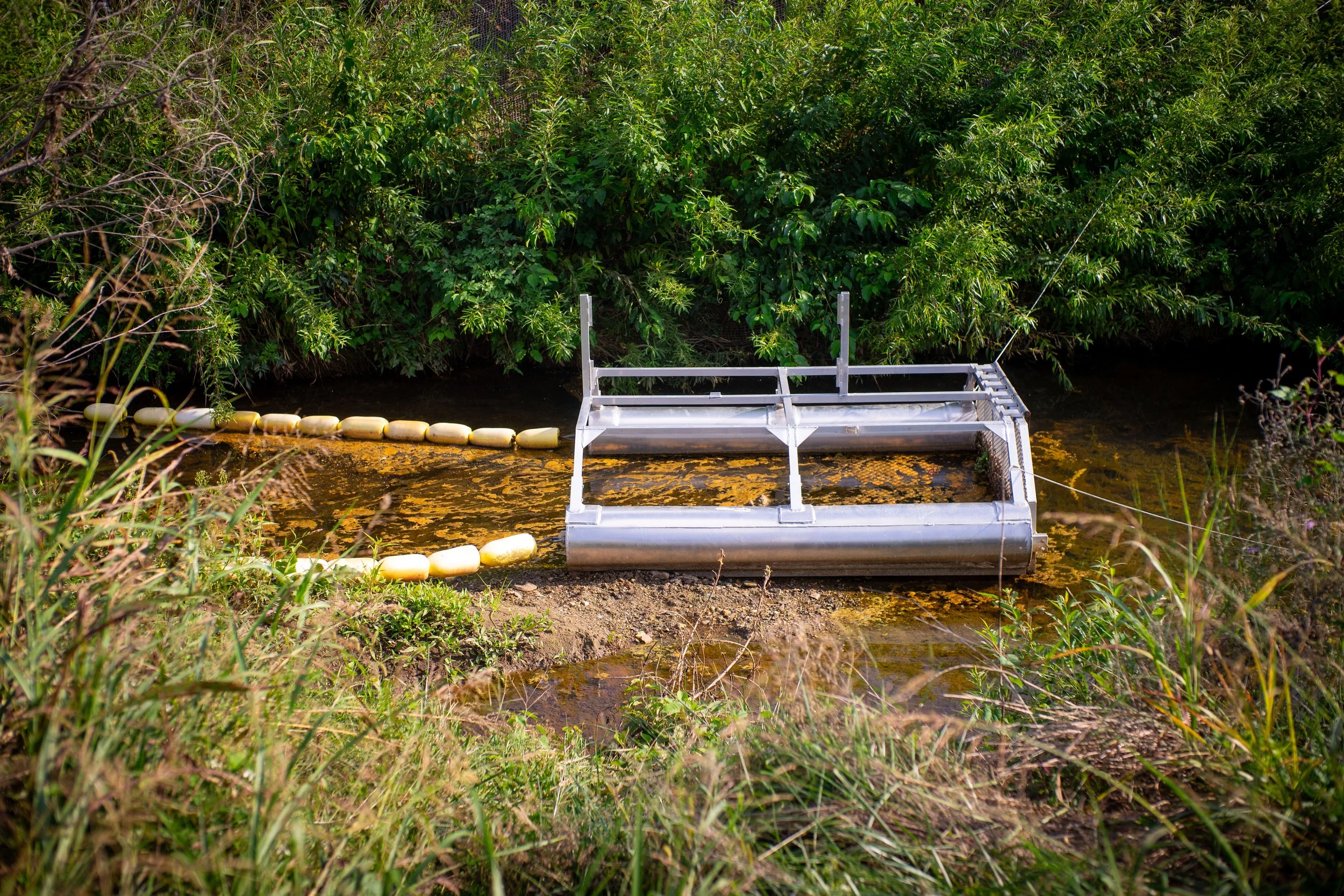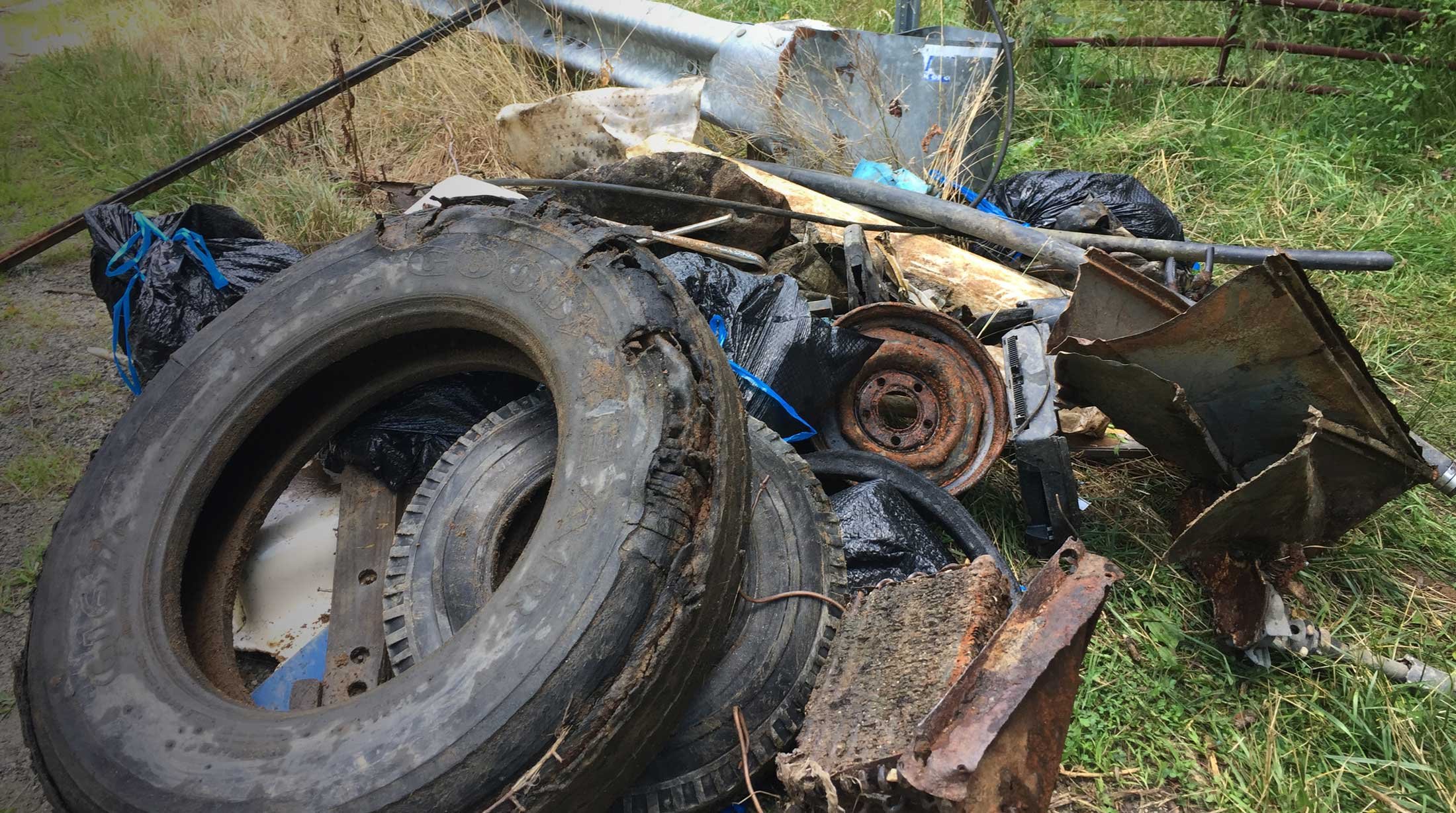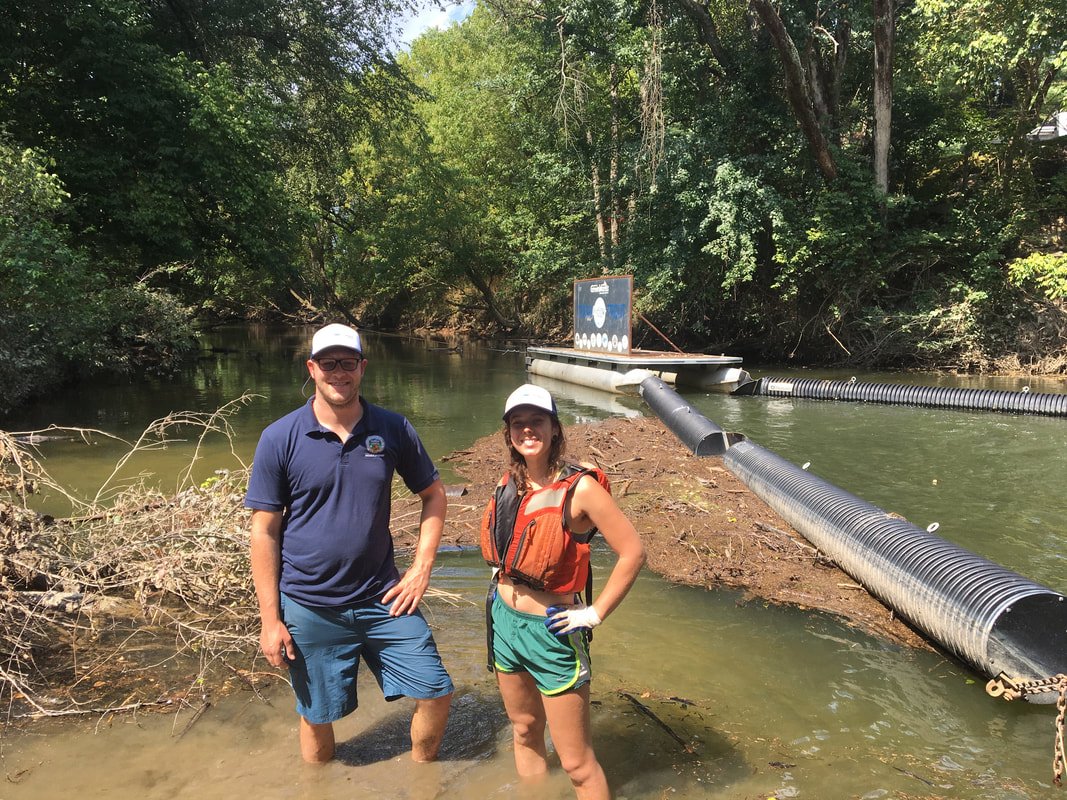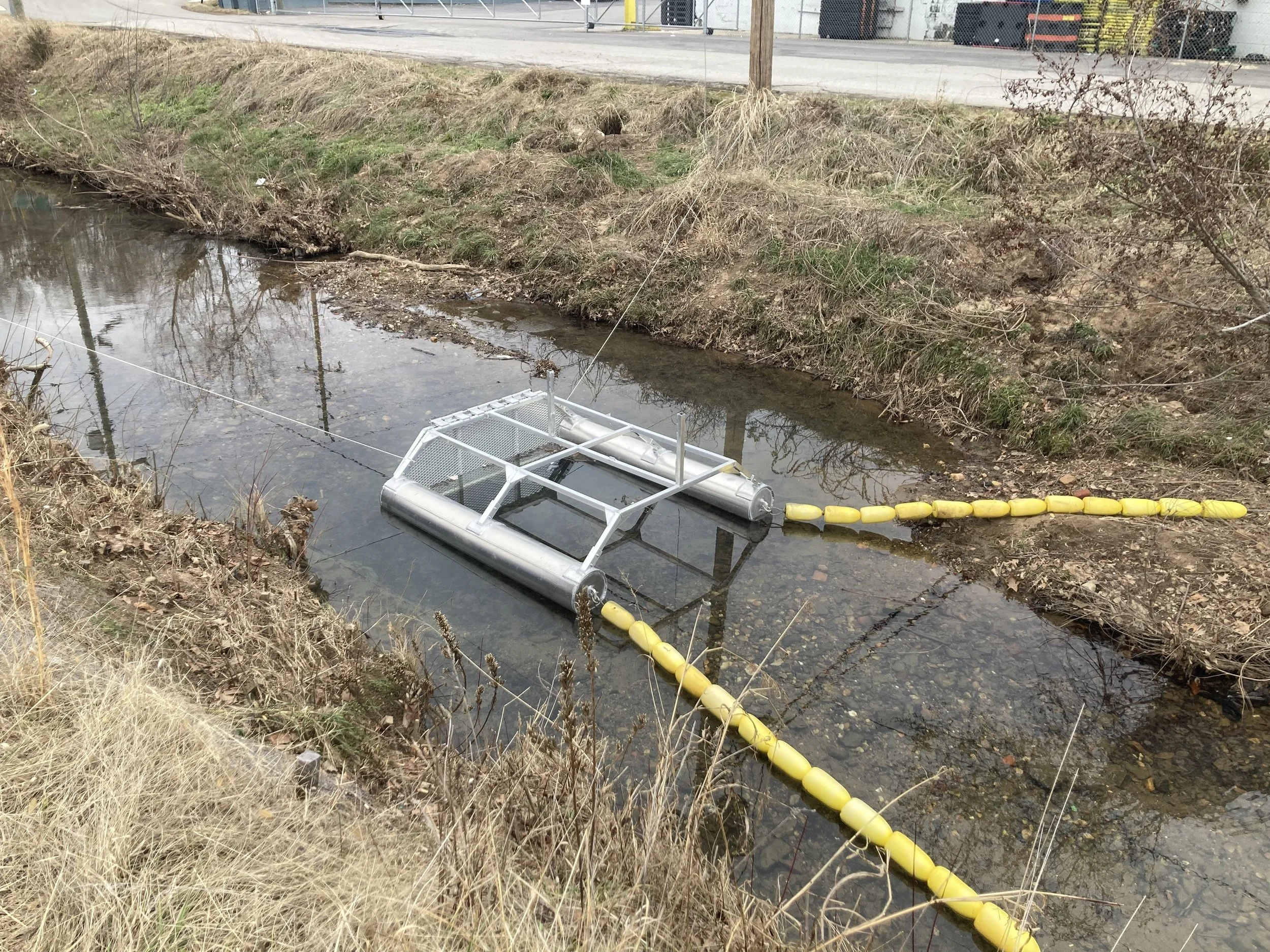
Trash Trout™
Catch More Litter
Clean up Faster
Serve Your Community
What’s a Trash Trout?
Trash Trouts™ are waterway litter traps. They capture and hold stormwater litter, making river cleanup faster and more efficient, and protecting downstream waterways.
“Two dedicated local residents volunteer to clean out the trap once or twice a month, depending on the rain. I only have to worry about it when it catches something really big.
It used to take us days to organize half-day volunteer cleanups. Now one person can clean out the trap in about an hour.”
—Mike Huffman
Stormwater Manager, City of Hendersonville, NC
The first Trash Trout™ was installed in Hendersonville's Mud Creek in June of 2017. As of October 2023 this trap has collected 7,665 lbs of man made trash - the equivalent of 176,295 empty plastic drink bottles.
Why Trash Trouts?
Currently, 53 Trash Trouts™ protect waterways in 5 states. When you become part of the Trash Trout™ family, we work with you to engage your community in your success.
Innovative solution to the problem of waterway litter.
Satisfy your MSP 1 & 2 requirements
Quantify the impact of your litter reduction efforts
Rally community and elected leaders around a highly visible litter solution.
Make litter clean up faster and more efficient
Collect more litter with fewer people in less time
Maintain it with as-needed cleanups
(biweekly or post-rainstorm)
Capture upstream trash to make a greater impact
Connect with your community
Engage volunteers to share the cleanup effort
Educate your community on the sources of litter
Easily demonstrate the impacts of waterway waste
Want to know how a Trash Trout can help you reach your goals?
Let us know how we can get in touch!
"I've only heard positive feedback!
Our group loves them."
—Emily Sutton
Haw Riverkeeper, and lead organizer of a partnership between Waterkeepers Carolina and Asheville GreenWorks to install 15 Trash Trouts™ on waterways across North Carolina.

Why Trash Trouts™ are so important
Roadside littering accounts for approximately 80 percent of the trash in our nation's waterways. Each time it rains, trash is funneled through our storm drain systems directly into our creeks. In the overwhelming majority of waterways across the nation, nothing prevents trash from entering our waterways, and no filters clean pollutants out of the water before it travels downstream.
Frequently Asked Questions
-
This device is designed to rise as the water rises. With regular maintenance, the trap will not become a flooding hazard.
-
No, the device was designed without a top or a bottom to keep creatures from becoming trapped.
-
In an urban waterway, you can count on trash being captured each time you have a significant rain event. Cleanup needs vary depending on rain volume, but most of our traps are maintained biweekly or monthly.
-
Once the man-made litter is safely removed, we open the rear gate and the plant debris is allowed to continue its journey downstream.
-
Absolutely, fill out our contact form and we will get back to you soon.



